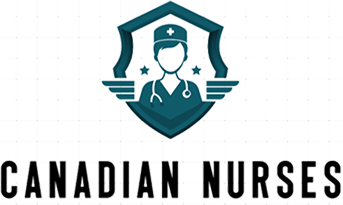Nursing is a noble and rewarding profession that offers opportunities to make a tangible difference in the lives of others. If you’re considering a career in nursing, this comprehensive guide will walk you through the essential steps, requirements, categories, and responsibilities of becoming a nurse.
Steps to Become a Nurse
Here are the basic steps to becoming a nurse:
Educational Preparation
Obtain a high school diploma or equivalent. Consider taking science and math courses to build a strong foundation for nursing education.
Choose a Nursing Program
Research and select a nursing program that fits your career goals. Options include diploma programs, associate degree programs, and bachelor’s degree programs in nursing.
Complete Nursing Education
Enroll in and successfully complete your chosen nursing program. Coursework typically covers anatomy, physiology, pharmacology, nursing theory, and clinical practice.
Pass Licensure Exam
Upon completion of your nursing program, you’ll need to pass the National Council Licensure Examination (NCLEX-RN or NCLEX-PN) to become a licensed nurse.
Obtain Licensure
Apply for licensure in your state or province. Licensing requirements vary by jurisdiction but usually include passing the NCLEX exam and meeting other state-specific criteria.
Continuing Education
Stay current in your field by pursuing continuing education opportunities and maintaining your nursing license through periodic renewal.
Requirements Needed to Become a Nurse
There are certain requirements to complete to become a nurse, and these are:
Educational Requirements
A high school diploma or equivalent is required for entry into nursing programs. Higher levels of education, such as an associate or bachelor’s degree in nursing, may be preferred or required for certain nursing positions.
Licensure
All nurses must obtain licensure from their state or provincial regulatory body. This typically involves passing the NCLEX exam and meeting other licensing requirements, such as completing a criminal background check.
Clinical Experience
Nursing programs include clinical rotations or practicums, where students gain hands-on experience working with patients under the supervision of licensed nurses and instructors.
Main Categories of Nurses
If you want to become a nurse, there are several types that you can choose from:
Registered Nurses (RNs)
RNs provide direct patient care, coordinate patient care plans, administer medications, and educate patients and their families about health conditions and treatments.
Licensed Practical Nurses (LPNs) or Licensed Vocational Nurses (LVNs)
LPNs/LVNs provide basic nursing care under the supervision of RNs or physicians. Their duties may include monitoring patients’ vital signs, administering medications, and assisting with daily activities.
Advanced Practice Registered Nurses (APRNs)
APRNs have advanced education and training beyond RN licensure. They include nurse practitioners, clinical nurse specialists, nurse anesthetists, and nurse midwives, who provide specialized care and may have prescriptive authority.
How Long Does it Take to Become a Nurse?
- Diploma Programs: Typically take 2-3 years to complete.
- Associate Degree Programs: Generally require 2-3 years of study.
- Bachelor’s Degree Programs: Typically take 4 years to complete.
The Responsibilities of Becoming a Nurse
Becoming a nurse is not just about acquiring technical skills; it’s about embracing a set of core responsibilities that define the profession:
Patient Care
Nurses are responsible for providing compassionate and competent care to patients, promoting their health and well-being.
Advocacy
Nurses advocate for their patients’ rights and needs, ensuring they receive quality care and have their voices heard in healthcare decisions.
Education
Nurses educate patients and their families about health conditions, treatment options, and self-care practices to empower them to make informed decisions about their health.
Collaboration
Nurses collaborate with other healthcare professionals, including physicians, therapists, and social workers, to develop and implement comprehensive care plans for patients.
Continuing Professional Development
Nurses engage in lifelong learning and professional development to stay current in their field and provide the highest quality of care.
Becoming a nurse is a journey filled with challenges, rewards, and opportunities to positively impact the lives of others. By following the steps outlined in this guide and embracing the responsibilities of the profession, you can embark on a fulfilling career dedicated to healing, compassion, and service to others.

